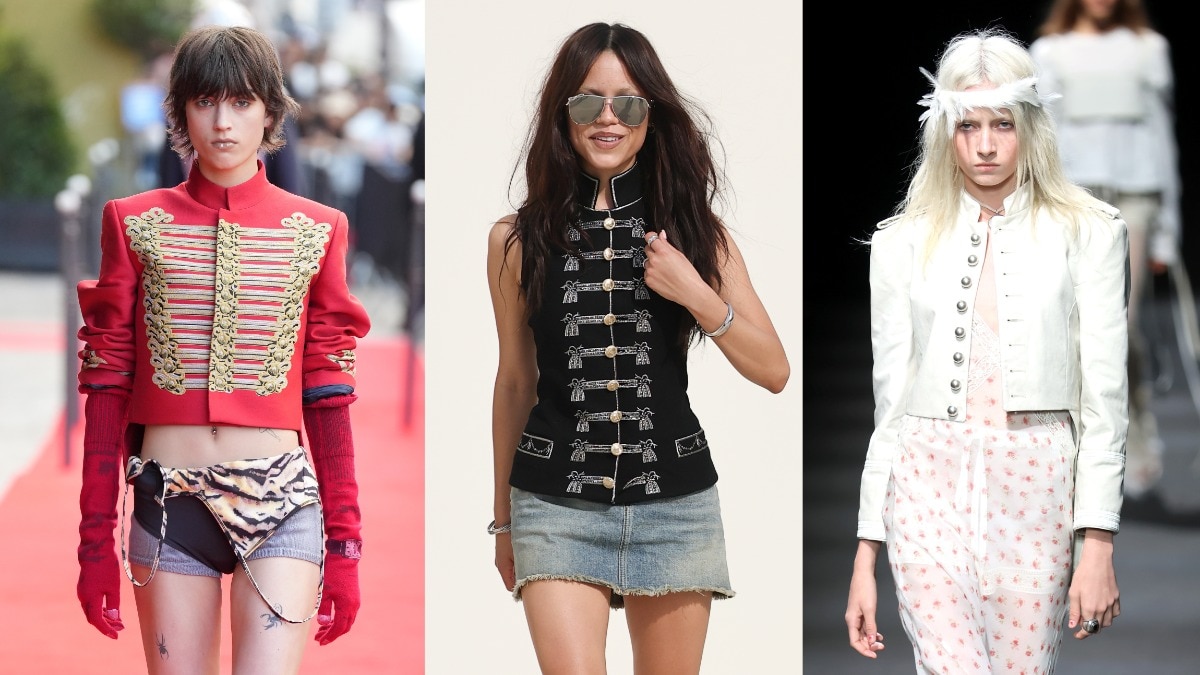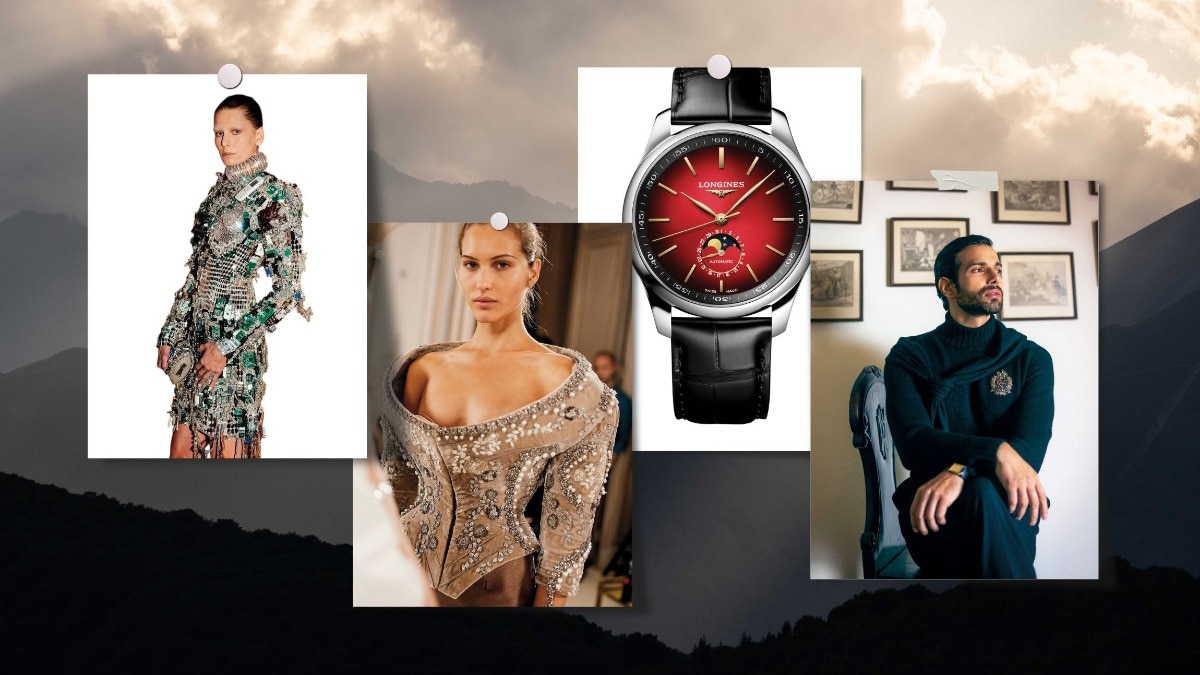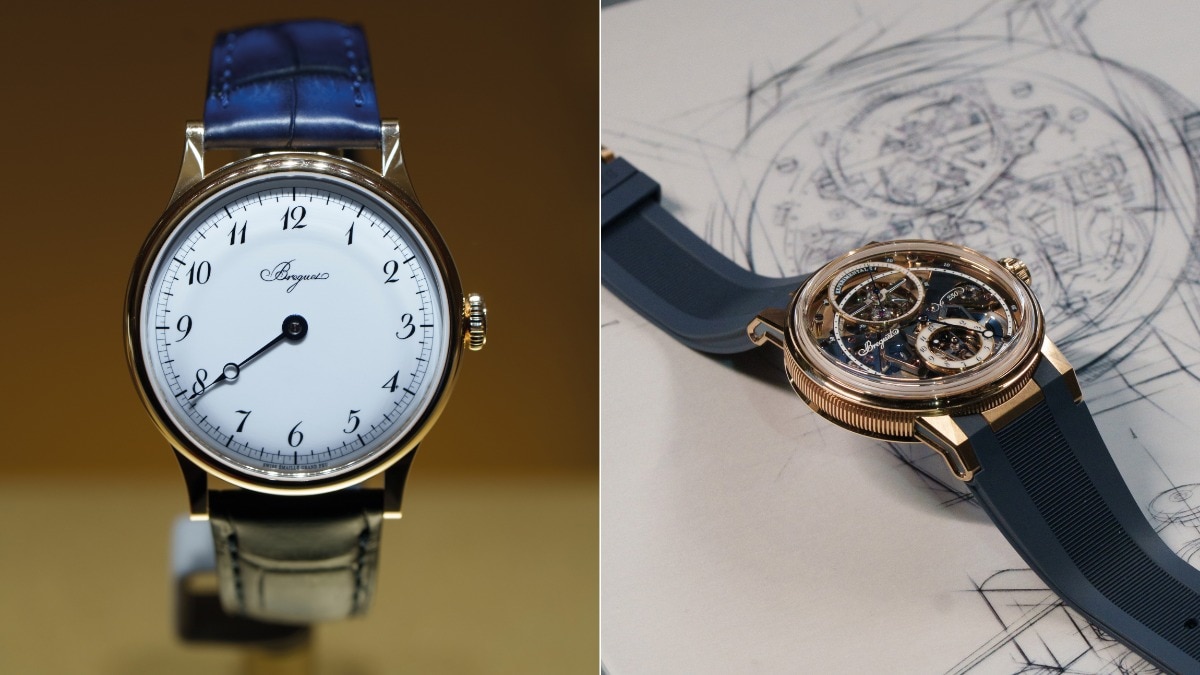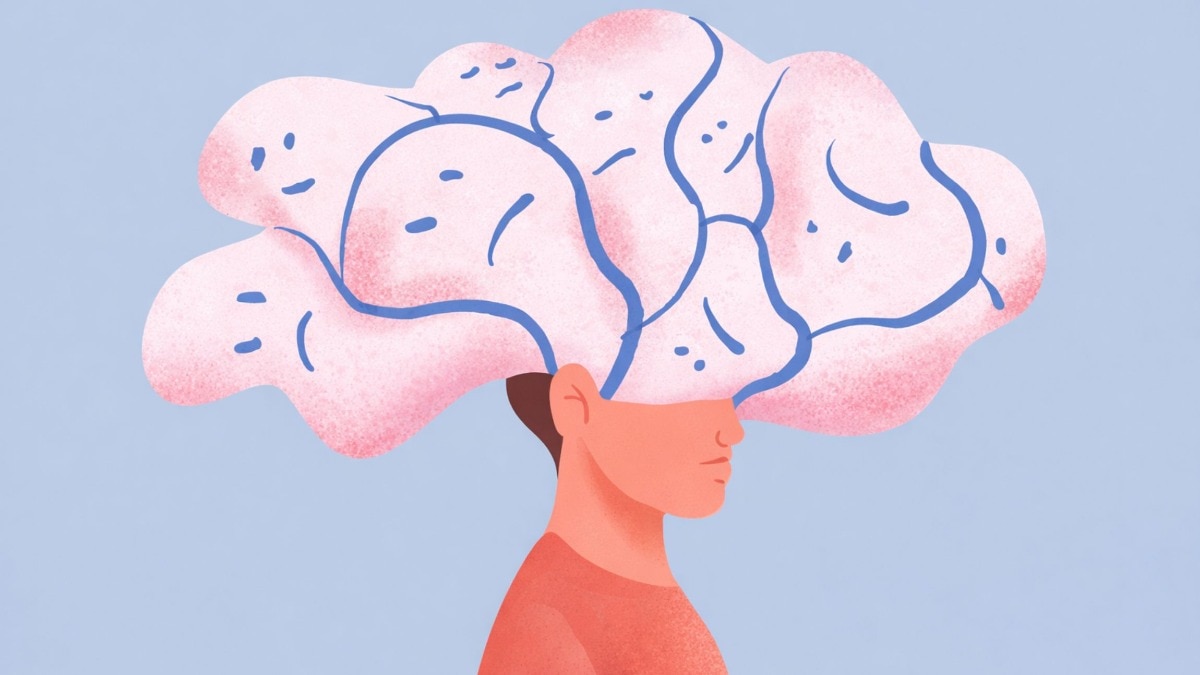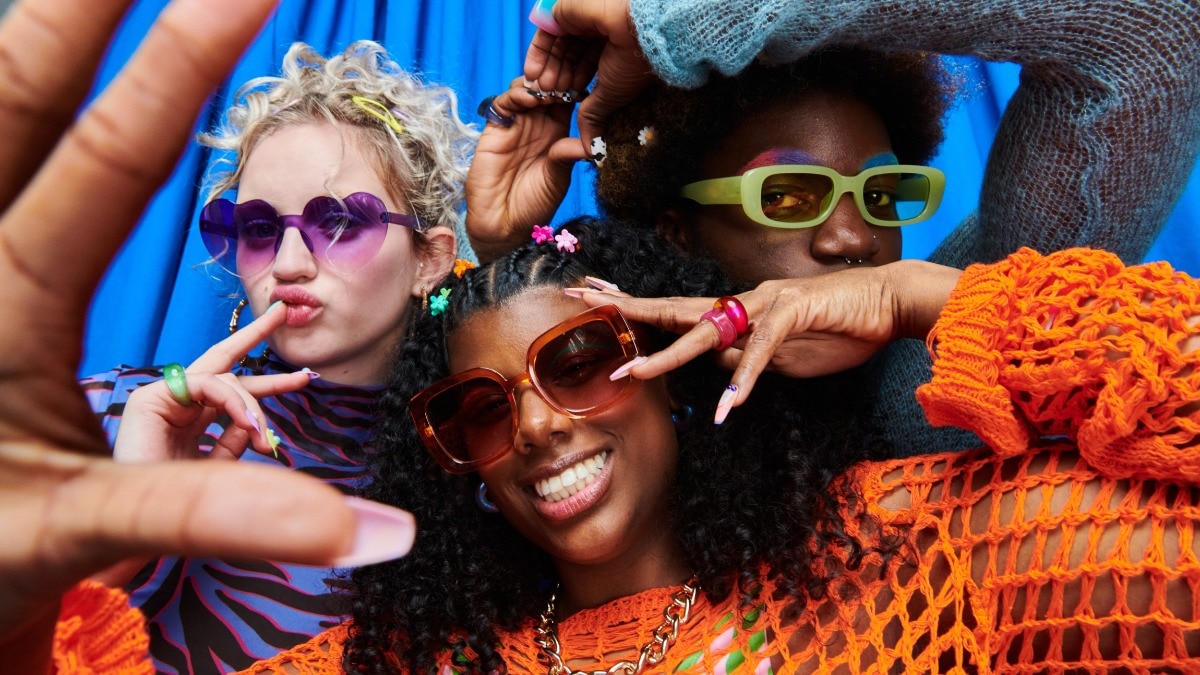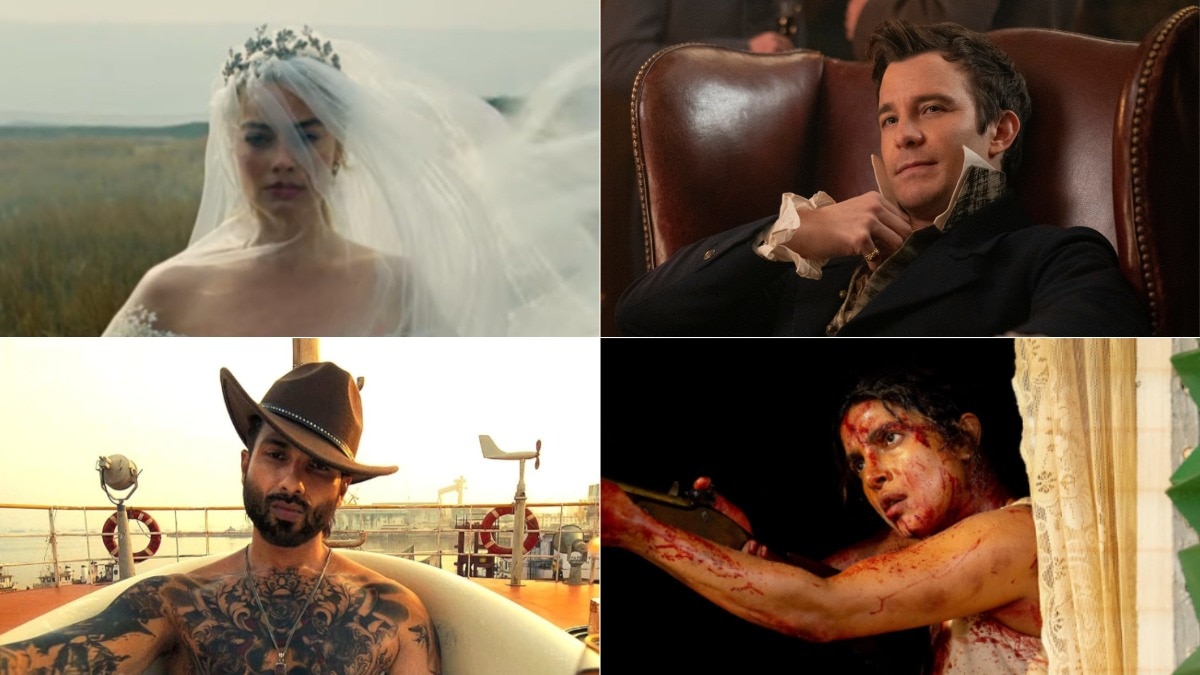From Rihanna to Taylor Swift, here's why designer Ashish Gupta's bold designs have a diverse fan club
As Ashish Gupta's first retrospective opens, the designer talks about sticking to his guns, subverting stereotypes and expressing himself through sequins.


Kaleidoscopic trousers, shimmering sequin dresses and bold slogan T-shirts are Ashish Gupta’s love language, through which he communicates his vision for liberation. The designer, who founded his eponymous label over two decades ago, creates glamorous clothes that reflect both what he describes as ‘the sexiness and freedom of night life’ and his experiences as an immigrant; some of his most striking pieces feature phrases such as ‘Love sees no colour'.
Growing up in 1980s and 1990s Delhi, Gupta found himself drawn to his mother’s fashion magazines; once he finished school, he moved to London to study fashion design at Central Saint Martins. This was the time when being gay was illegal in India, so I felt like I needed to go to a big, glitzy liberal city,’ he explains. After he established his brand in 2001, a friend wore one of his designs to the Mayfair boutique Browns Focus, whose buyer Yeda Yun put in an order. It wasn’t long before stars from Rihanna to Taylor Swift were seen wearing his playful pieces.

Ashish is a small, independent label, where the garments are still sewn by hand. Yet it has made its presence known in the industry, thrice winning the prestigious British Fashion Council NewGen award. Gupta also committed to casting diverse models in his shows long before other brands followed suit. ‘Equality and inclusivity have always been part of the world I was imagining, which I wanted to live in,’ he says. ‘For me, making collections is a very personal process. It’s not necessarily about what’s cool right now—it’s more about asking myself, “What do I want to express?”’
This month will see Ashish’s first retrospective open at the William Morris Gallery, with more than 60 archive pieces on display, including the glittering floral jumpsuit worn by Hunter Schafer. ‘It follows different stages of my journey, which has at times been very difficult—avoiding being stereotyped as an Indian designer, and trying to be taken seriously in my medium,’ he reflects. ‘But I always said to myself, just do the work and stick to what you feel is true to you. That’s what is important in the end.’

This piece originally appeared in the March 2023 print edition of Harper's Bazaar UK

